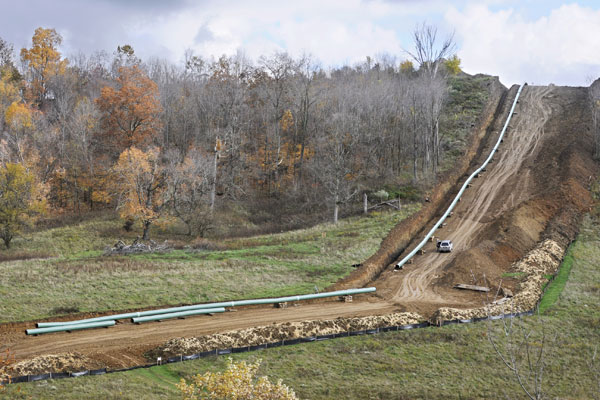George P. Mitchell passed away on Friday, July 26, leaving behind a legacy as the man who unlocked America’s vast oil and natural gas shale resources.
Born into a poor family, Mitchell wasn’t handed success. Having emigrated from Greece, his parents, Savvas and Katina, stressed the importance of hard work and an education. Mitchell paid his way through Texas A&M and served in the Army Corps of Engineers before starting an oil drilling business with his brother in Texas. Never would Savvas and Katina have believed their son George would turn the company into one of Texas’s best or that his hard work and risks would make him a billionaire philanthropist.
But no one expected Mitchell to reshape the energy outlook of a nation.
By the 1980s, people in the oil and gas industry knew that opportunities to drill were quickly decreasing. They also knew that there was still oil and gas trapped in pockets of shale rock. For almost 20 years, Mitchell led a team to find an economical way to access these resources. For almost 20 years, people told him that he was wasting his time and money. But Mitchell and his team eventually discovered a way to combine hydraulic fracturing and horizontal drilling technology, which could open up hundreds of years’ worth of domestic oil and gas and create thousands of jobs.
Natural gas import facilities built in the mid-2000s are now petitioning the Department of Energy for permits to export natural gas. Companies around the world are seeking to expand in America because of inexpensive energy prices. Penna Flame, a small metal hardening company in western Pennsylvania, can afford to hire a robotics technician because their electric bills have decreased by more than half.
Overseas, Poland and Lithuania have been able to challenge a Russian stranglehold on energy prices, and England has just discovered what may be the world’s biggest pool of shale natural gas, which many not long ago would have discounted as useless.
For all the jobs Mitchell’s persistence created in oil and gas drilling, there are many more yet that have been created to support these industries and the communities that have grown up around shale resources—from pipe fitting and transportation to housing and grocery stores.
In a message announcing his passing, the family said Mitchell had “a love for his fellow man” and was motivated by “giving back to the community that made his success possible and lending a hand to the less fortunate struggling to reach their potential.” Mitchell and his team found a way to take something useless and make it available for a thousand different uses and thousands more jobs. His success has become success for many others who have had a second chance to work hard and earn a decent living in otherwise cloudy economic times.































